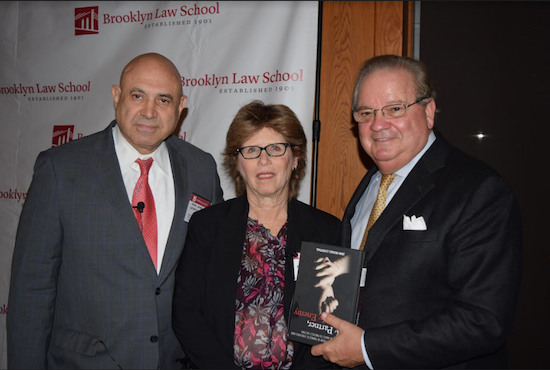Brooklyn Law School hosts domestic violence discussion with Justice Leventhal

Brooklyn Law School (BLS) hosted a discussion on domestic violence where alumnus Hon. John M. Leventhal and Professor Elizabeth Schneider addressed the subject, as well as Leventhal’s new book “My Partner, My Enemy: An Unflinching View of Domestic Violence and New Ways to Protect Victims,” in Downtown Brooklyn on Monday night.
“I really got a lot out of this book and if you haven’t read it yet, I urge you all to do it,” said Nicholas W. Allard, dean of BLS. “He is the Sergeant Joe Friday of authors. He isn’t opinionated, it’s not argumentative, he lays out the facts and it is a compelling story.
“The scope of this problem is enormous,” Allard continued. “I’m very proud that our own Judge John Leventhal has had such a positive impact, and the [Felony Domestic Violence Court] that he helped setup and presided over has become a template for other courts throughout this state and others. But much work remains to be done.”

Brooklyn Boro
View MoreNew York City’s most populous borough, Brooklyn, is home to nearly 2.6 million residents. If Brooklyn were an independent city it would be the fourth largest city in the United States. While Brooklyn has become the epitome of ‘cool and hip’ in recent years, for those that were born here, raised families here and improved communities over the years, Brooklyn has never been ‘uncool’.